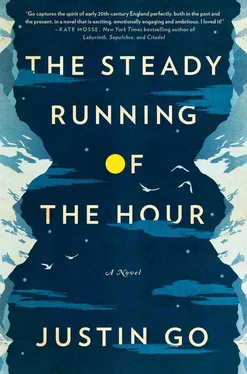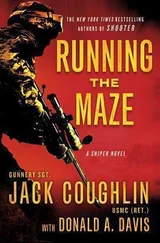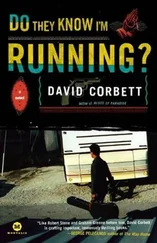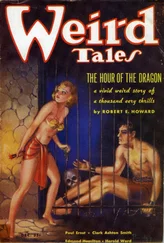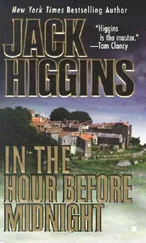Ashley spends the next hour inspecting the men for trench foot. He kneels before them holding a candle in a murky ditch as the men strip off their boots, struggling to wipe their feet with socks already black with mud. The best feet are merely caked with filth; the worst are red and swollen, dangerously close to gangrene. He orders the men to massage whale oil into their feet, watching them change into spare socks that will be soiled again in minutes. Ashley blows out the candle and hands it to Sergeant Bradley, whispering to himself as he walks back along the trench.
— If I then, your Lord and Master, have washed your feet, ye also ought to wash one another’s feet.
In the afternoon Ashley studies the layout of the country using his pocket periscope from the Army & Navy Stores on Victoria Street. He scans the flat horizon, all white snow and gray morass, the occasional wisp of smoke or khaki figures dashing around the flanking positions. B Company will be the second line of attack, in close support of the first wave. Ashley’s platoon is on the far right of the attack: Lieutenant Eaton commands the platoon to his left, beyond this the two other platoons of B Company under Lieutenant Hawkes and Lieutenant Bennett. Beyond no-man’s-land the redoubt is conspicuous, a tower of chalk above a heap of snowy mud. Ashley watches it for some time before he can make out the figure of the Empress, but once he has seen her he can see nothing else. The figure remains faceless.
All day the men wallow in the mud, hungry and cold, waiting for the ration party to arrive. They have marched all night without water and there is nothing to drink here. Ashley sends a pair of men to scout for water in the vicinity, but they bring back only a sackful of canteens gathered from the German dead. Some of the men will not drink from these, saying it is bad luck, but when one of the canteens is found to be full of schnapps there is great jubilation.
Near dusk the ration party finally arrives. They have taken seven hours to carry their loads through the mud, their rifles slung on their shoulders, in each hand a petrol can full of water. Some of them carry sandbags full of biscuits and bully beef. There is no hot food. The water tastes of gasoline and the men have trouble drinking it even as they pinch their noses. Ashley mixes in a little whisky from his flask and gulps it down. The smell of bully beef makes him queasy, so he eats only a couple of biscuits and prepares to sleep a few hours. Zero hour for the attack is 06:00 tomorrow.
Ashley lies as the men lie, against the wet remains of a trench wall, his gas mask bag for a pillow. As he grows drowsy, he whispers a few words to her, indulgently.
— I could stand even worse. Anything for you. Imogen.
It thrills him to speak her name, but he feels embarrassed even though no one can hear him. It snows most of the night. Ashley is not fully awake, but he is shivering too much to sleep.

By four o’clock in the morning Ashley is wide-awake and feeling quite nauseated. He rises from the ground and walks a few yards toward a hole designated as a latrine, no more than a ditch dusted with quicklime. He urinates into the hole. Then he tries to vomit. Over the sleepless night his mind has become a wreck of nervous anxiety, and he imagines it might help to empty his stomach. Ashley bends over the ditch and the odor makes him gag, but nothing comes out. He straightens and stands there for a moment, the frigid breeze singing past his ears in the darkness. He wonders if this is how his last morning on earth begins. It is a useless question, he decides.
Soon afterward Ashley meets the other officers of B Company, the five men standing in the muck at a crossroads of crumbling trenches. They synchronize their watches and Jeffries says a few words about the attack. Everyone already knows the plan. Jeffries has brought an empty ammunition box and the officers fill it with addressed parcels for their wives or lovers, letters and mementos to be sent if they should be killed. Ashley drops in a short letter to Imogen, but he has no keepsake to leave behind. Jeffries latches the box shut. They shake hands all around.
At a quarter to six the order goes down the line. Fix swords. The men each draw the long bayonet from the scabbard at their waist, setting them onto their rifles with a soft rustling of steel. They wait in the trench, many smoking cigarettes. Morning breaks colorless and bleak. It has stopped snowing and a thick mist curls over the ground.
At six o’clock the British batteries open all at once with a clank of shells jetting overhead, then thundering blows in the distance. The German lines on the horizon explode with color: bursts of red and yellow, geysers of dirt and smoke. The bombardment is short, a twenty-minute prelude to the attack. Ashley lights a cigarette to calm himself. Feigning cheerfulness, he walks among the men making trivial jokes, checking rifles and equipment. He eyes the sweep hand of his watch, forty ticks until the first wave goes over. The Germans send up signal flares in pink and green flashes. On both sides the machine guns rattle ferociously. Above the mist hovers the obscene white prow of the Empress.
Fifty yards ahead there is a low groan as the first wave clambers over the frontline parapet. Ashley watches them through his periscope: the men crawl up the mud and many are caught by a traversing machine gun as soon as they step over the top. The line wavers, men dropping their rifles and crumpling to the ground. A few stagger forward and disappear into the mist.
Ashley collapses the periscope and sets his whistle in his mouth. All around him the men look at Ashley expectantly, the whites of their eyes showing through the fog. It has begun to drizzle again. Ashley draws his pistol from its holster, the gun attached to a long lanyard around his neck. He eyes his watch, the sweep hand curving up toward twelve. It is time. He raises his arm and blows the whistle. Awkwardly he scrambles up the lip of the parapet, but he slides backward in the mud. He steps up again and waves the men forward, blowing his whistle in a burst of shrill notes. The line of men goes forward with a primordial bellow, their rifles leveled.
At once half the line is cut down as a machine gun opens on Ashley’s left. It traverses at shoulder height and the taller men catch bullets in the neck, the shorter ones in the eyes. They crumple to the ground, spewing blood. Ashley urges the remaining men onward, expecting the machine gun to catch him at any second. The soldiers struggle to move quickly, sinking with each step over mud and ice and refuse. They waddle forward under heavy loads, shovels swinging on their packs as they walk over a set of planks strung across a long muddy ditch. They have reached the British front line.
Ashley urges his men forward, waving his arm. They step around the bodies of wounded and dead Durhams from the first wave. The gunfire is deafening. Farther on the ground is a latticework of mud and snow, icy in some places, sticky in others. Ashley has lost sight of all but a small party of his men, Sergeant Bradley and Mayhew and a few others. He cannot see far in the mist. He charges on, his eyes on a flashing machine gun ahead, but he stumbles on the rim of a shellhole and falls flat into the mud. A shrapnel shell bursts high overhead. Half-swimming, half-walking, his revolver lifted high, he limps out of the shellhole, dripping with mud. Mayhew follows close behind. They meet Sergeant Bradley and three men taking cover below a tiny ridge.
— Where are the rest of the men? Ashley demands.
— Don’t know, sir, the sergeant says. Dead, I think. The machine gun caught most of them when we come out. Mr. Eaton and Mr. Hawkes was shot before we crossed our own lines. Haven’t seen Mr. Jeffries or Mr. Bennett.
Читать дальше
